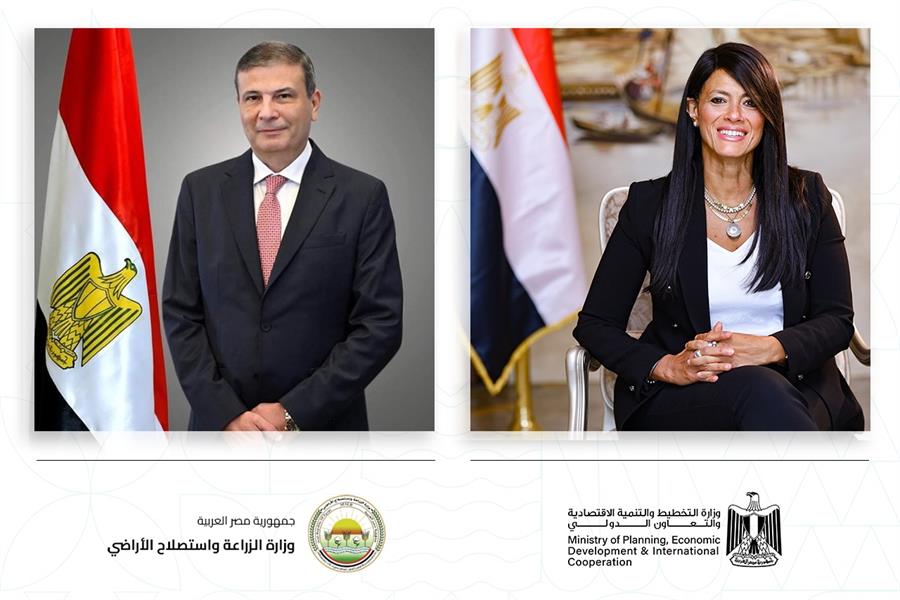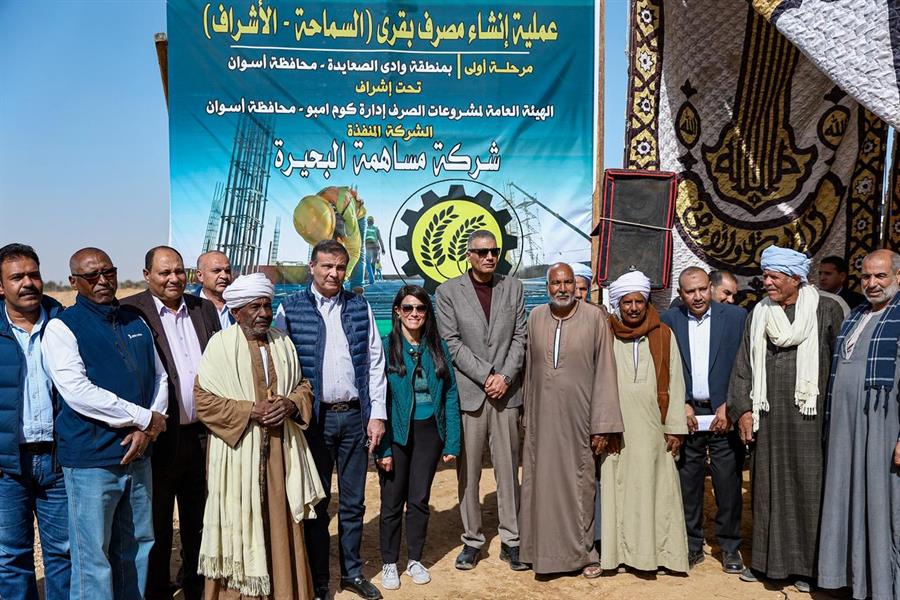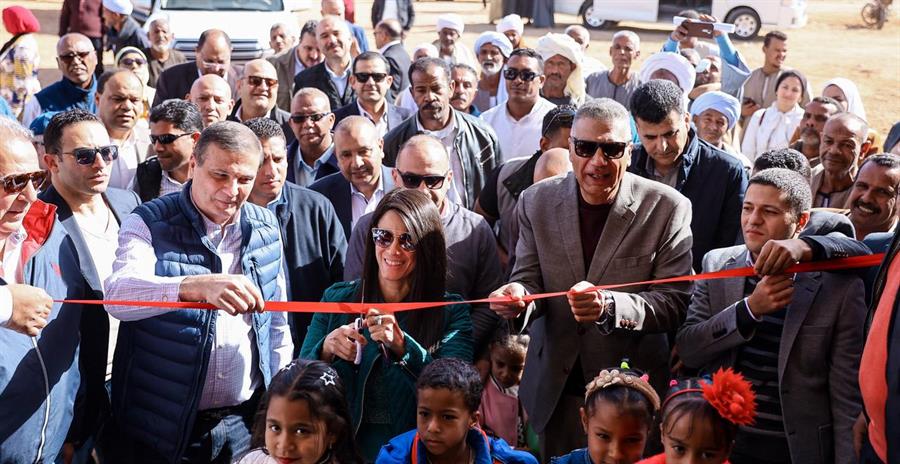Minister of Planning, Economic Development, & International Cooperation Discusses Sustainable Financing for Urban Development at the World Urban Forum (WUF)
08 November 2024
Minister of Planning, Economic Development, & International Cooperation Discusses Sustainable Financing for Urban Development at the World Urban Forum (WUF)
Financing as a Global Commitment: The Minister emphasized that financing is a shared commitment among all countries and stakeholders to drive progress. Emerging economies, in particular, require more innovative financing mechanisms to attract investments.
Building an Effective Financial Architecture: The Minister stressed the importance of establishing an effective global financial architecture, integrating public investments with international financing to maximize development impact.
Structural Reforms for a Stronger Investment Climate: Ongoing structural reforms were highlighted as essential for improving the business environment, attracting both domestic and foreign investments, and empowering the private sector.
Public-Private Partnerships: The Minister underscored that partnerships between governments and the private sector are crucial to ensuring the sustainability of development efforts.
Upcoming International Conference on Financing for Development: The Ministry is preparing to participate in the International Conference on Financing for Development in Spain.
H.E. Dr. Rania A. Al-Mashat, Minister of
Planning, Economic Development, and International Cooperation, participated in
the "Financing Sustainable Urban Development" session as part of the
roundtable discussions on the Future Global Action Plan on Housing and
Infrastructure Finance. This session was held during the World Urban Forum
(WUF), hosted in Cairo from November 4th to 8th. The session featured the
participation of Mr. Ahmed Kouchouk, Minister of Finance; Ms. Anacláudia
Rossbach, Under-Secretary-General of the United Nations and Executive Director
of the United Nations Human Settlements Programme (UN-Habitat); and
representatives from the World Bank Group.
In her remarks, H.E. Dr. Rania A. Al-Mashat
emphasized the critical role of financing in addressing key global challenges
such as climate change, adaptation, innovation, bridging energy gaps, and
mobilizing private investments—issues that are all fundamentally linked to
financing.
Dr. Al-Mashat highlighted the importance of
integrating citizens' needs into these discussions, reinforcing a comprehensive
vision that positions financing as a central, ongoing commitment at the
national level. She further stressed that this commitment is shared globally
among all countries and stakeholders, working collectively to achieve common goals
that ensure sustainable progress.
H.E. Dr. Rania A. Al-Mashat emphasized the
World Bank Evolution Roadmap, which includes establishing a financial framework
that fosters global cooperation and enhances the efficiency of resource
allocation. This framework ensures that limited resources are directed toward
critical global development efforts, which should remain a top priority. By
adopting this approach, we have a significant opportunity to design financing
strategies that pool resources for the benefit of all.
Dr. Al-Mashat further noted that a key focus
within the World Bank’s development framework is the creation of an effective
financial architecture. This involves linking domestic public finance with
international financial networks, facilitating collective progress, aligning
with national priorities, supporting global goals, and maximizing development
impact.
She stressed the importance of flexibility in
addressing various financing gaps, particularly when discussing how to reduce
inefficiencies and leverage national financing within countries. Clarity on
this issue is essential, especially in terms of maximizing the use of available
financial resources.
H.E. Dr. Al-Mashat also reiterated the need
for emerging economies to adopt more innovative financing mechanisms to attract
investments and drive their development efforts forward.
The Minister emphasized the need for a fair
environment and the creation of reforms that enable the state to effectively
leverage financing. She highlighted the importance of cooperation with
development partners, noting that recent legislative changes have facilitated
private sector investments in numerous projects. These investments have
accelerated urbanization and development across the country. The government
plays a key role in safeguarding public investment while committing to
necessary regulatory reforms that attract private capital, particularly in
projects focused on addressing climate change.
The Minister also noted that national
strategies are closely aligned with the strategies agreed upon with
international partners, forming an integrated framework that governs these
relationships. This framework ensures the provision of optimal support through
joint efforts. The key pillars underpinning these partnerships include the
green transformation, inclusivity of all societal groups, and digital
transformation.
H.E. Dr. Rania A. Al-Mashat further emphasized
the importance of establishing clear plans for each development project,
stating that this is a crucial element in the state’s strategy. Such plans must
be aligned with national climate standards and reflect the aspirations of
future generations. She underscored the critical role of public-private
cooperation, supported by national resources, in achieving these goals. This includes
updating legislation and providing the necessary technical and political
backing to ensure the successful implementation of policies that serve the
long-term interests of both the state and its citizens.
H.E. added that in the context of transforming
service delivery and improving access to facilities, it is equally important to
be prepared to address emerging challenges. She highlighted the need to explore
new partnerships that can help overcome these obstacles, stressing that
collaboration between governments and the private sector is crucial for
sustaining progress.
Moreover, H.E. Dr. Rania A. Al-Mashat
highlighted the importance of resource allocation that ensures a balance across
all regions, taking into account the specific needs of each region or social
group. This approach aims to improve the standard of living for all citizens,
whether in urban or rural areas. She pointed to the development of human
capital as a fundamental pillar for building a strong and effective government
structure. She also emphasized the vital role of local units in the development
process, noting that enhancing their capacity will allow them to provide
innovative solutions tailored to regional needs and make informed decisions
based on their local realities.
In conclusion, H.E. Dr. Rania A. Al-Mashat
reiterated that addressing today's challenges is a shared responsibility. No
single entity can achieve the necessary change alone—continuous cooperation and
coordination among all stakeholders are essential. Through collective efforts,
we can achieve tangible results that positively impact both local and global
communities.









